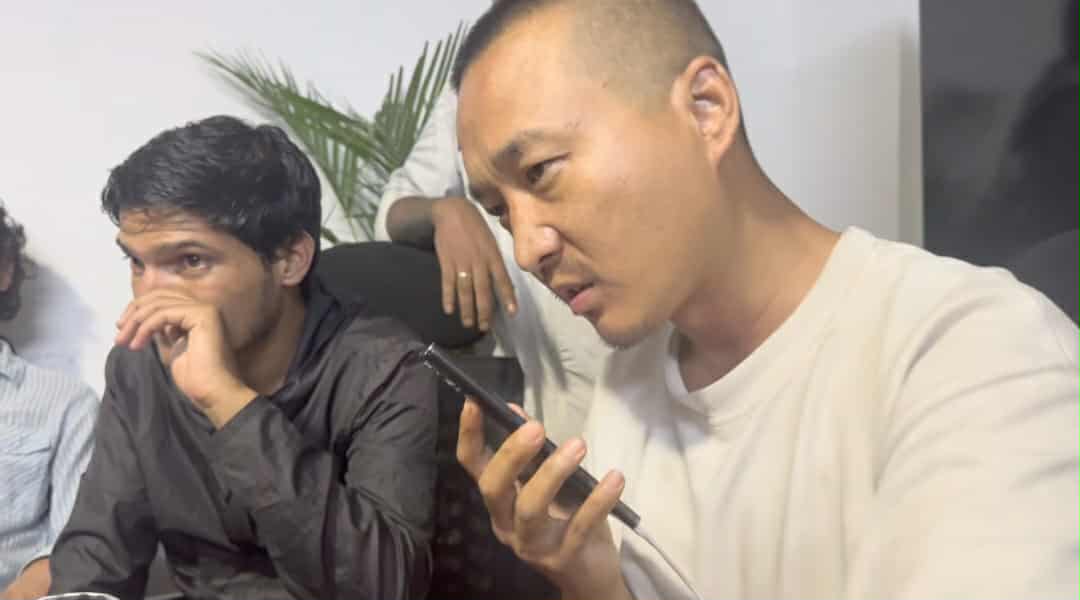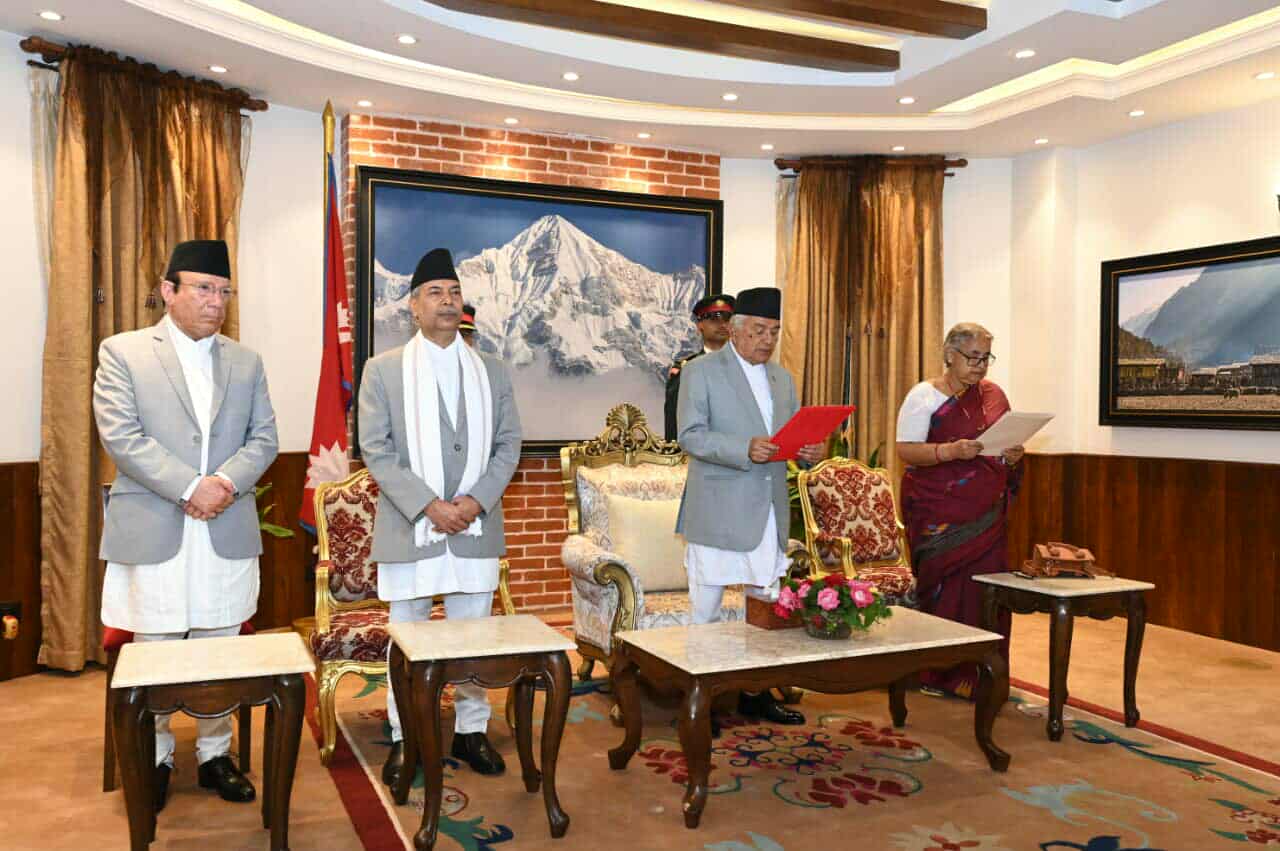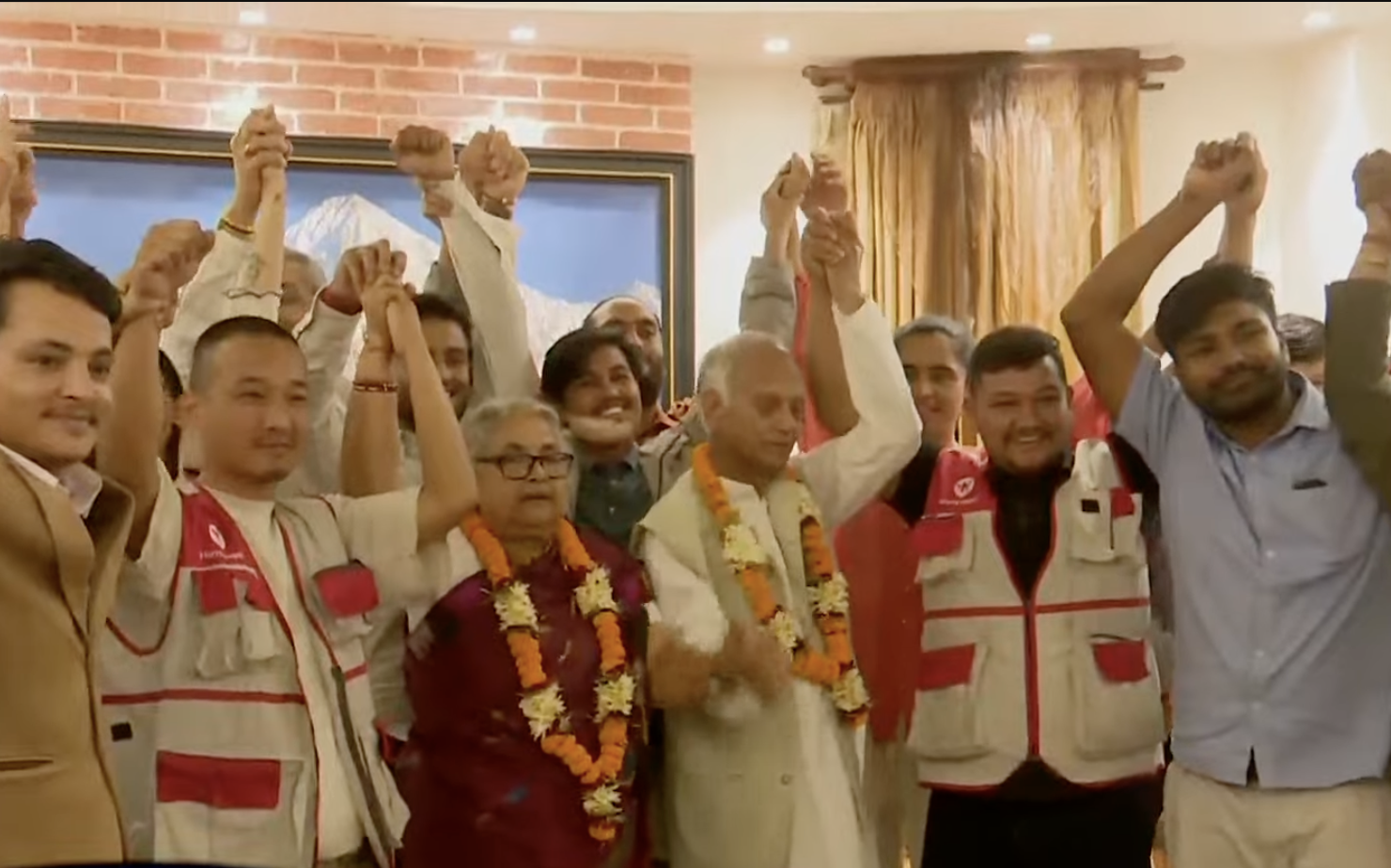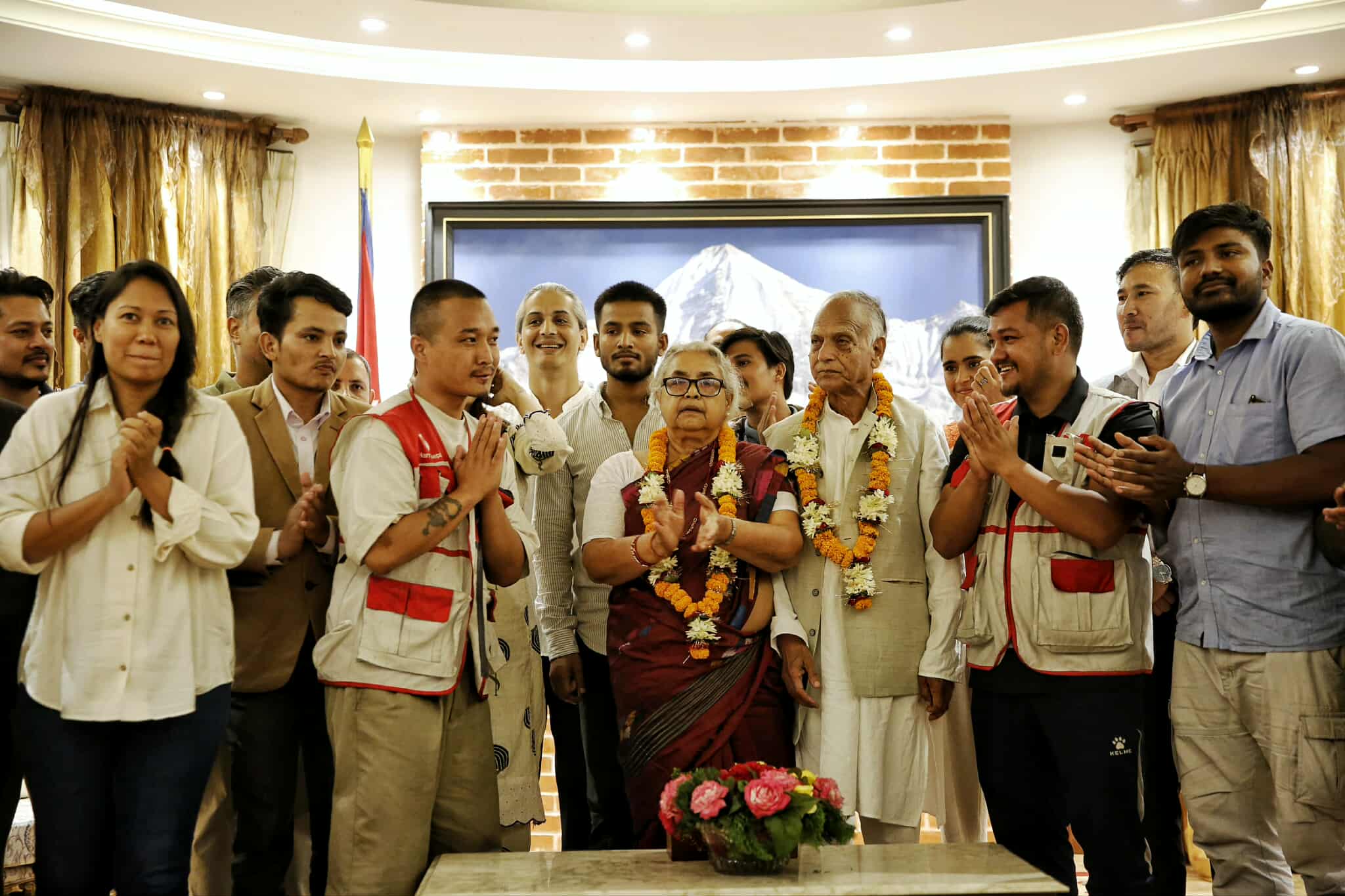Madam Prime Minister of Nepal
Sushila Karki is Nepal’s first female PM, but has her work cut out to give the country a new beginningAfter a week of violent and destructive protests, Nepal’s President Ram Chandra Poudel on Friday appointed former Chief Justice Sushila Karki as a caretaker Prime Minister to lead an interim citizens' government.
Poudel had been in closed-door discussions since Thursday with youth members who spearheaded the protests, constitutional experts, the House Speaker, and the Army Chief.
There was a consensus on the choice of Karki as candidate for interim prime minister, but her swearing-in was stalled due to a disagreement about Constitutional processes for her appointment.
Youth delegates and Karki demanded that Parliament be dissolved before the appointment of the caretaker prime minister, while President Poudel had been arguing that Parliament would be automatically dissolved once the new council of ministers announced elections.
Representing the GenZ movement, Sudan Gurung (pictured, below) is said to have insisted that dissolution of Parliament first was non-negotiable because he did not trust the political parties. He is said to have added that he would call his supporters out into the streets, and the President relented. The military’s warning earlier that an emergency would be declared if there was no agreement tonight clinched it.

With this, Karki becomes Nepal’s first female prime minister, exactly a decade after she became the country’s first female chief justice in 2016.
Nepalis, still shocked by the death and destruction of the past week, heaved a sigh of relief at the announcement, which was greeted as a victory of youth power for political reform led by the GenZ movement. Its initial anti-corruption protest on 8-9 September spiralled out of control into violence and arson nationwide that claimed at least 51 lives.
Several other candidates were floated for the caretaker prime minister’s post. Kathmandu Mayor Balen Shah and former head of the electricity utility Kulman Ghising were being considered, but both declined possibly because they want to contest the next national elections.
Given her experience in the judiciary and zero tolerance for corruption, Karki was the favourite of various groups within the GenZ campaign.
The site of the negotiations moved to the official residence of the president in Shital Niwas from the Nepal Army Headquarters on Thursday. The Army had come under criticism on social media and from civil society for detaining the President and not letting him speak or be a part of the negotiation.
This fuelled public perception that the military had a soft spot for a return of the monarchy. There were widespread rumours on Thursday that king Gyanendra, who was ousted after the abolition of the monarchy in 2008, was trying to stage a comeback by piggybacking on the agitation.
Writing on X, senior journalist Kishore Nepal revealed that the Chief of Army Staff Ashokraj Sigdel had allegedly asked Poudel to step aside and pave the way for the military to negotiate, to which the President is said to have replied: “I will not resign. Kill me instead and blame it on the protesters. Then you can do whatever you like.”
Live broadcast of swearing in of Sushila Karki:



COURAGE AND INTEGRITY
Sushila Karki served as the chief justice between 11 July 2016 to 6 June 2017, and has been known for her frugal ways. She was a firebrand judge unafraid to ruffle powerful feathers, and as chief justice was behind ruling to impeach for abuse of office a powerful head of Nepal’s anti-graft body in 2016. She wrote that he had ‘neither the moral character nor qualifications for the post’.
Even before she became Chief Justice, Karki was one of the two judges on the bench that convicted the sitting Minister for Information and Communication, Jaya Prakash Gupta, of corruption in 2012. Then in 2016, a bench including Karki ruled against granting amnesty to former Maoist lawmaker and convicted murderer Bal Krishna Dhungel.
Karki was born on 7 June 1952 in Biratnagar. She completed her undergraduate studies at Mahendra Morang College in 1972 before obtaining a postgraduate degree in political science from Banaras Hindu University in India three years later. This was followed by a Bachelor's in Law in 1978 from Tribhuvan University, and she started her law career as an advocate a year later.
In 1985, Karki worked as a teacher at Mahendra Multiple Campus in Dharan, and was jailed for participating in the 1990 People’s Movement to overthrow the Panchayat absolute monarchy.
She became a senior Advocate at the Nepal Bar Association in 2008 and was appointed an Ad-Hoc Justice at the Supreme Court in January 2009.
On Thursday, there were supporters for other candidates for the post sloganeering against Karki’s nomination outside the Army Headquarters. Some on social media were also skeptical of her connection to the Nepali Congress (NC) party.
Growing up in Biratnagar Karki was close to the family of B P Koirala, Nepal’s first elected prime minister in 1960. Her husband Durga Subedi was part of a group of underground Congress activists who hijacked a Royal Nepal Airlines plane in 1973, flying it to India to snatch cash belonging to Nepal Rastra Bank in the cargo hold.
The money was used for the party’s pro-democracy campaign.
Karki has no love lost for the political establishment. In April 2017, the governing coalition under Maoist Prime Minister Pushpa Kamal Dahal submitted an impeachment motion against her after the Supreme Court overturned his decision to install a favoured police chief, violating succession based on seniority.
It was a political move backed by Dahal’s coalition partner Sher Bahadur Deuba of the NC who was waiting to become prime minister for the 4th time.
CHALLENGES AHEAD
With Karki now in charge of the interim government, she has the daunting task of forming a council of ministers made up of amorphous and disparate groups from the GenZ, technocrats, and current politicians. Karki has said she will not prevent members of her cabinet from contesting elections, which means those with electoral aspirations like Kulman Ghising, Balen Shah and Sumana Shrestha could be asked to join.
Karki has her work cut out as she has to get her team members to pull in the same direction to hold free and fair elections. She also has to make sure she has the support of the military without giving the generals too much say, while also smartly maneuvering Nepal’s precarious geopolitical ties with its giant neighbours, China and India.
But most of all, the new prime minister must lay the foundations to not just physically rebuild the judiciary, executive and legislature but also ensure that elections will produce a more accountable and efficient government.
Read also: Trial By Fire, Editorial
writer
Sonia Awale is the Editor of Nepali Times where she also serves as the health, science and environment correspondent. She has extensively covered the climate crisis, disaster preparedness, development and public health -- looking at their political and economic interlinkages. Sonia is a graduate of public health, and has a master’s degree in journalism from the University of Hong Kong.




